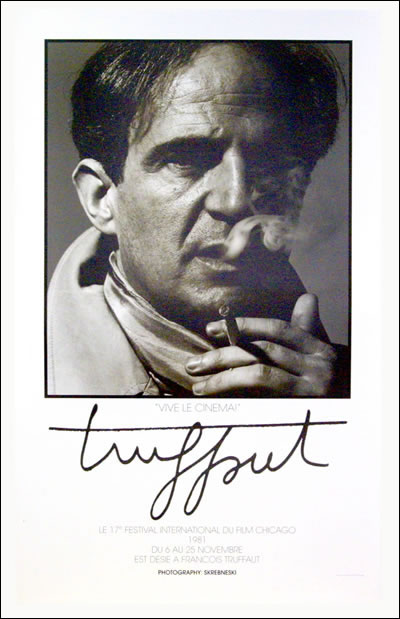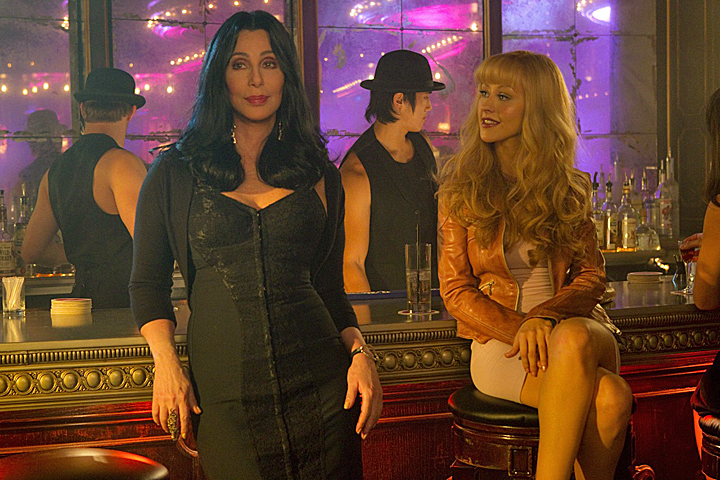Q. I just viewed Charlie Chaplin‘s classic “City Lights” for the first time, in film a class. After letting the film’s spell settle on us, my professor asked us to consider the final scene: specifically, what does the Girl really “see”? Most of our answers felt pretty obvious — she sees the truth that the man she had loved is the Tramp, and not a millionaire, she sees that he is still the same person she loved and she accepts him, etc.
I thought most of this was made fairly clear. That last look in her face, particularly when she puts the Tramp’s hand to her heart and seems to gasp to hold back tears (which I took to be tears of overwhelmed joy), followed by his anxious, almost rapturous, smile, seemed to indicate that she clearly accepts him and even loves him.
My professor, however, seemed to think there was more ambiguity in the scene. She certainly has no problem with the fact that he’s a tramp, and doesn’t mind that he’s not at all like the tall, handsome man imagined, but my prof suggested we cannot be sure how much she knows, and thus to what extent she really accepts and loves him. Aside from the fact that she can’t know for sure that he wasn’t rich when he was still with her, and thus doesn’t know how he struggled to help her or how he was deceiving her, she could be so overwhelmed by the revelation of his identity that she just doesn’t have enough time to think through everything in that scene, not enough to really know if she returns his love completely.
In your Great Movie essay, you said, “She sees, and yet still smiles at him, and accepts him. The Tramp guessed correctly: She has a good heart, and is able to accept him as himself.” I definitely thought this much, at least. Do you think there is much ambiguity about her feelings in that scene? Is it too much for me to assume she returns his love, more than merely accepting him as a good man who happens to be the Tramp?
David Michael, Milpitas, Calif.
A. I think the power of the scene resides in the fact that she now knows who he really is, and her love is not only unchanged but even enhanced.
Q. I just watched Truffaut’s whole Antoine Doinel cycle (“The 400 Blows,” “Bed and Board” and “Love on the Run”) yet again. More than any other film series, I wish there would be a continuation to these. I picture a movie where Christine has passed away, Antoine becomes a grandfather and his son moves into his home due to marital problems, and then the son’s wife moves in, too, and Antoine becomes the mediator to get them back together. Just imagine comedic Antoine baby-sitting scenes with his grandchild. I don’t know, I’m making this up as I go, because the possibilities are endless.
I contacted Truffaut’s daughter, and she responded negatively. But I know that people say things and feel things at times in their life, and later change their minds.
“It means a lot that my father’s films still touch some people in such a personal manner. About the Doinel series, my father was absolutely determined that ‘Love on the Run’ had to mark the end of the series. To him it felt wrong to portray the character becoming middle-aged. For one thing, a main trait of Antoine D is that he can’t quite accept to grow up and to be an adult. Seeing Antoine as a middle-aged man still fumbling through life would have been somewhat bitter, my father thought. Also, the movies started with a strong biographical bent, but as my father succeeded in his line of work while his character tried his hands at many different jobs with mixed results, they were really parting ways, and he felt he couldn’t really go much further in that vein. It didn’t ring true to him, I guess, in the way the earlier films did. Even ‘Love on the Run’ felt like a stretch for my father.
“Both my father and Jean-Pierre Leaud were determined to end the series with ‘Love on the Run.’ I don’t believe my father would have liked the idea of a continuation by another director, and honestly my sisters and I would never approve it, as we are certain of his wishes on the matter. I hope you enjoy your first trip to France, too — Paris still looks pretty much the way it did in “Stolen Kisses” if you avoid all the McDonald’s and Starbucks!” [Signed] Laura Truffaut.
One test might be to ask Jean-Pierre Leaud if he would consider doing it all these years later, if Truffaut had been OK with it.
Peter Fawthrop
A. Francois Truffaut died at 52. His New Wave contemporary Claude Chabrol, two years older, has a new film in his year’s Chicago International Film Festival. Think of all the wonderful films that were claimed by Truffaut’s death.
Q. Without hesitation “Couples Retreat” is one of the worst movies I’ve seen in years, so unpleasant that I felt compelled to write. I hope others heed your review (I ended up in the theater after my first two choices were sold out). It’s our Thanksgiving Day weekend here in Canada and I was planning on going to a couple of movies, but after sitting through “Couples Retreat,” I just can’t contemplate a return to the theater any time soon.
Wendy Myshak, Edmonton, Alberta
A. Wendy! Wendy! It’s not all movies! It’s just that one!
Q. I just read your review of “Surrogates,” about people who experience life through the bodies of humanoid robots. You mentioned how it would be awkward for the hosts themselves to have sex between each other as they really look, you said something about them masturbating at home. I think you may have overlooked a key phrase given in the trailer: “Feel what they feel.”
Mike Magnotti
A. So in other words, when two robots have sex, their hosts experience what it would feel like for two cars to be in a fender bender? If they were totaled, would that mean the best sex they’ve ever had?
Q. You ask questions about zombies at the end of your “Zombieland” review. If we set aside the George Romero playbook, which states that “they’re us” and which makes associations between zombies and American consumer culture, the military complex and technological addictions, the general purpose of zombies is simply to give audiences a glimpse of what happens to the body after death.
In the United States particularly, natural processes of death and decay are hidden away as taboo, or at best, are sanitized to the point where, for the average person, there is a pretty large and troubling knowledge gap when it comes to the subject. Zombies let us see “what happens” behind the scenes of the ultimate disappearing act. They naturally look bad because they are in the process of rotting, which is the whole idea. I suppose if they could come back after being embalmed, it might make them appear a bit more up to code, but I’m unclear as to whether that’s allowed or not.
As for obtaining food vs. avoiding being blasted, well, zombies are nothing more than instinctual eating machines. Did Bruce the shark try to avoid gulping down the oxygen tank as it was attempting to eat Roy Scheider? Same principle. Some creatures simply don’t care as long as there are munchies in the vicinity. But this only begs the question: WHY do zombies only want to eat living human flesh? I think it might be a status issue amongst monsters.
Kenton Sem, Bethlehem, Pa.
A. You make good sense, Pennsylvania Zombieologist. Since the living eat the dead, why shouldn’t the dead turn the tables?
Q. Last night, I visited the Rotten Tomatoes site, and four reviews of “Zombieland” mentioned a surprise star cameo. This morning, my son noticed you gave the movie three stars, then asked, “Did you know Bill Murray was in it?” He hadn’t even started reading the review — you listed him in the cast! In the future, could you please refrain from giving away something like that?
D. Massi, Ontario
A. Ouch! I goofed. However, the fact that of Murray’s cameo isn’t funny by itself. The line that he says gets the biggest laugh I’ve heard all year. I guess I’d better not quote it here.












